Believing is one thing – facts are another. The recent McKinsey study confirmed that contrary to popular belief SaaS is really not just a small-business toy; it is indeed becoming mainstream amongst large corporations: “61% of North American companies with sales over $1 billion plan to adopt one or more SaaS applications over the next year.”
A new study by Nucleus Research confirms these findings: 63% of companies with over 1000 employees adopted some On-Demand solution, vs. 46% of those with less then 1000 employees. The study turned up a few more “surprises”, perhaps the most striking one being the market-share of particular types of applications. Salesforce.com is the poster-boy of SaaS, in fact many would argue they created this market, yet CRM appears to have a relatively low adoption rate amongst SaaS customers, only 32%. Project Management comes close, 23% of the responding organizations deployed PM solutions.

Even more surprising (?) is future buying intention:

(Charts by Zoho Sheet)
If we compare the two sets of numbers, CRM has already peaked and Content Management, Project Management will be the new growth areas:

A word of caution: I’m not sure these numbers represent true market share. 198 companies of all sizes from under 100 employees to over 500 participated in the survey, and the results are not weighted by number of users. I tend to believe that Web-based Project Management is often used for small-team efforts, and in this setup a small startup with 5 Basecamp-users counts equal to a large company with 200 salesforce.com seats (theoretical numbers). Draw your own conclusions. Oh, and since it’s the weekend, here’s a statistician joke:
A business owner asked job applicants the same question: “how much is 2+2?”
The engineer pulled out his slide rule and shuffled it back and forth, and finally announced, “It lies between 3.98 and 4.02”.
The mathematician said, “In two hours I can demonstrate it equals 4 with the following short proof.”
The social worker said, “I don’t know the answer, but I’m glad that we discussed this important question.
The attorney stated, “In the case of Svenson vs. the State, 2+2 was declared to be 4.”
The trader asked, “Are you buying or selling?”
The statistician looked at the business owner, then got out of his chair, went to see if anyone was listening at the door and pulled the drapes. Then he returned to the business owner, leaned across the desk and said in a low voice, “What would you like it to be?”
Tags: nucleus research, saas, on-demand, crm, project management, content management, ecm, statistics, zoho sheet





 Enterprise 2.0 as such but the debate itself, and as such self-referential and unacceptable as an independent source…)
Enterprise 2.0 as such but the debate itself, and as such self-referential and unacceptable as an independent source…)
 ), but that carries the risk of the Playbook becoming just another discussion forum. Perhaps we should all heed the advice under
), but that carries the risk of the Playbook becoming just another discussion forum. Perhaps we should all heed the advice under 
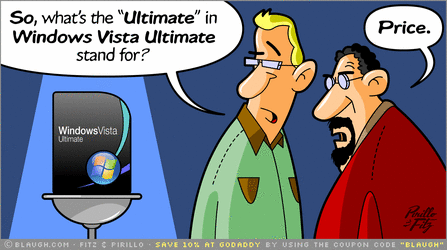

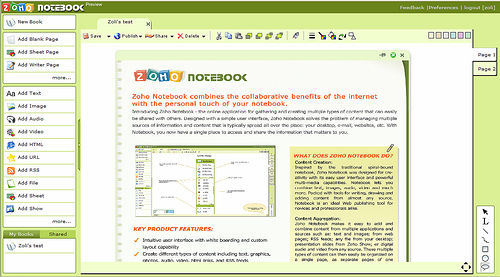
 and in the meantime, enjoy this
and in the meantime, enjoy this  . Update (1/31): In the same post I’ve just referred to, Dennis says: “Zoli Erdos has an interesting take on whether the collaboration features put Notebook in the same class as a wiki.”
. Update (1/31): In the same post I’ve just referred to, Dennis says: “Zoli Erdos has an interesting take on whether the collaboration features put Notebook in the same class as a wiki.” My regular readers know I’m a big
My regular readers know I’m a big 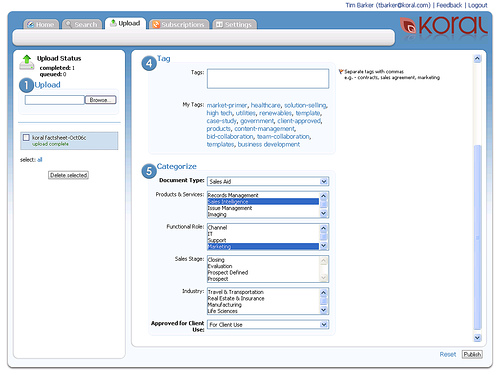
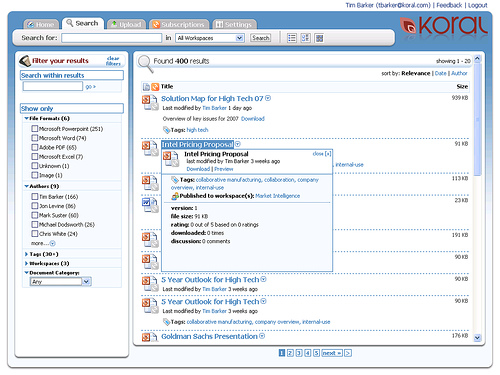
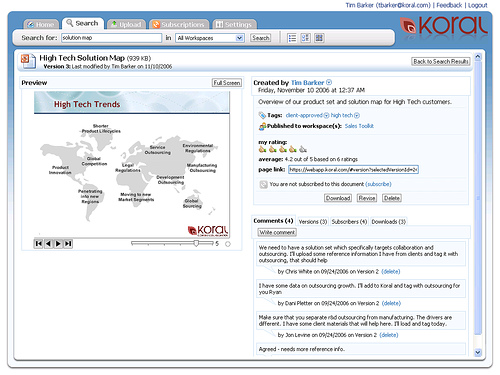
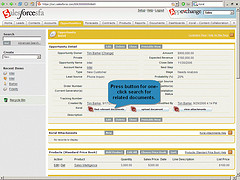
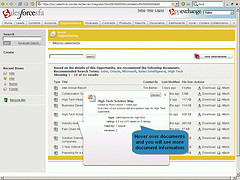

 SAP held major internal announcements and demos of its
SAP held major internal announcements and demos of its 
 It’s not everyday that a Google product announcement goes largely unnoticed. That’s exactly what happened yesterday when
It’s not everyday that a Google product announcement goes largely unnoticed. That’s exactly what happened yesterday when  The startup du jour is
The startup du jour is 

Recent Comments